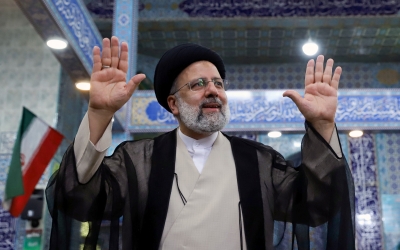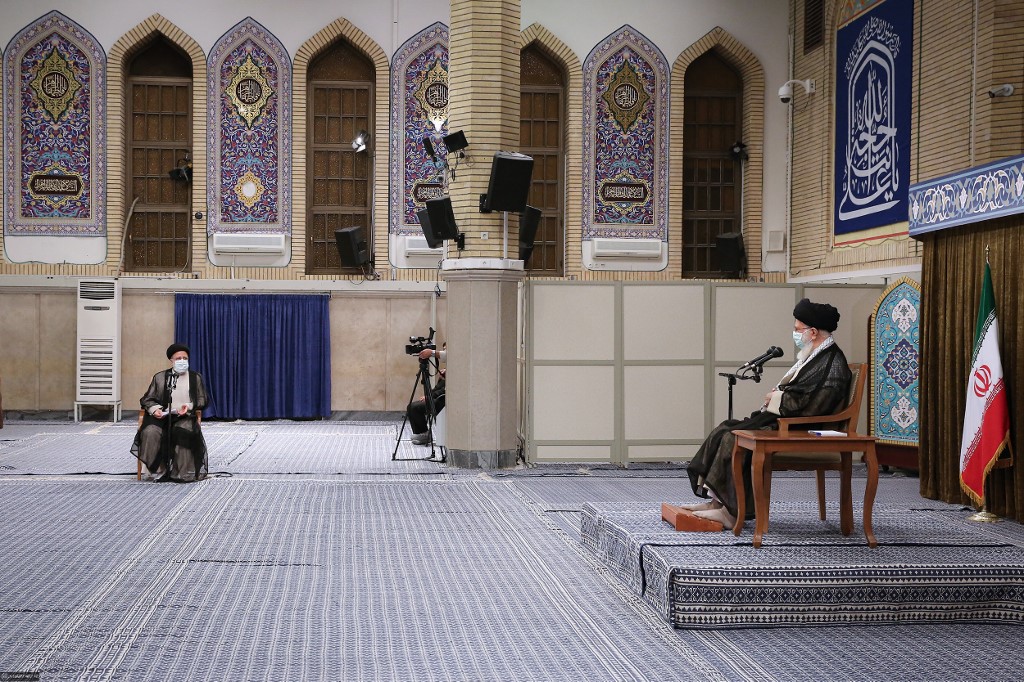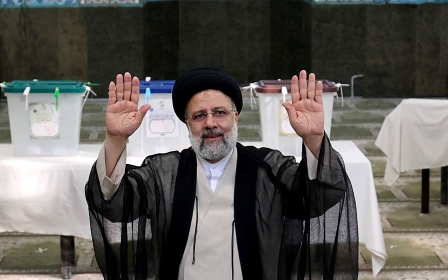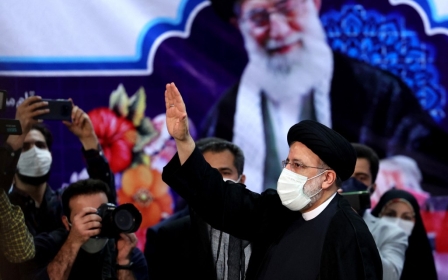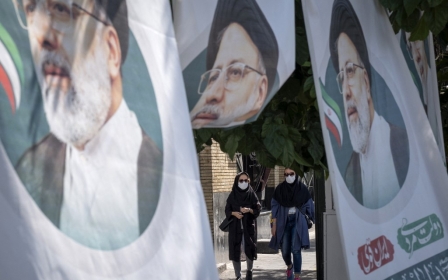Iran: On the survival of the impossible state
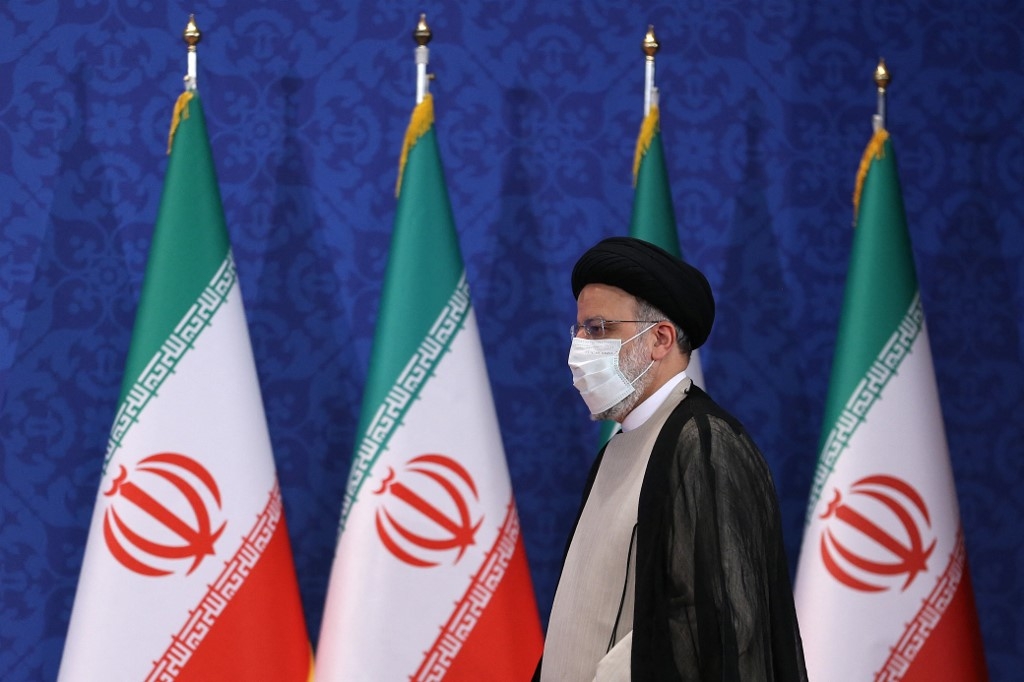
Iran had yet another presidential election last month - lacklustre, engineered, awkward and clumsily staged.
The 13th presidential vote since the establishment of the Islamic Republic resulted in the selection of Ebrahim Raisi, a solid conservative force throughout the history of the Islamic Republic - a man generally conceived as groomed to succeed the aging Ayatollah Ali Khamenei, who has sought (but failed) to rule supreme, with juridical precision and theocratic claims to divine guidance.
Why does Iran bother with such fake elections? What is the point of these sham spectacles of democracy?
The word 'revolution' in the Newspeak of the Islamic Republic has lost all ordinary meaning. It has become a mantra, a talismanic refrain that means anything and nothing at all
Iran has always suffered under the tyranny of one supreme leader or another: now Khamenei, before him Ayatollah Ruhollah Khomeini, before him Mohammad Reza Shah, before him Reza Shah, and before him a succession of useless Qajar monarchs. It is a mummified, taxidermic succession of pharaonic figures. Their outer regalia may differ, but the stuffing remains the same.
It was after the Constitutional Revolution of 1906-1911 that Iran began to bother with the spectre of democracy, while the underlying monarchical and clerical power struggles were the real forces determining national politics. The same forces are still at work, except the clerical order has now swallowed and internalised the monarchy.
New MEE newsletter: Jerusalem Dispatch
Sign up to get the latest insights and analysis on Israel-Palestine, alongside Turkey Unpacked and other MEE newsletters
Islamist credentials
Raisi has been an establishment figure of the ruling clerical elite that governs Iran with an iron fist. He lacks any serious juridical education that would entitle him to a legitimate claim to be an “ayatollah”, but his political allegiances to the Islamic Republic and its ideological foundations have earned him high-ranking positions of power and authority over the years: deputy chief justice, attorney general and currently chief justice.
He served as the prosecutor of Tehran in the 1980s and 1990s, during which he oversaw the execution of thousands of political prisoners - work of which he said he was “proud”. He chaired Astan Quds Razavi, a rich and powerful foundation, and is a member of the Assembly of Experts.
Raisi is loaded with Islamist credentials. He is the mobile history of the Islamic Republic in a nutshell: an unyielding careerist, obedient to his superiors, committed to the state that has enabled and empowered him.
The word “revolution” in the Newspeak of the Islamic Republic has lost all ordinary meaning. It has become a mantra, a talismanic refrain that means anything and nothing at all. It is like the word “tremendous” for former US President Donald Trump.
Who will rule Iran for the foreseen and unforeseen future, and by what authority? The answer might seem easy for two simple but contradictory reasons: firstly, Iran is a theocracy of Shia jurists clumsily feigning democracy; and secondly, Iran wishes to be a democracy, but is prevented from this by a militant fraternity of Shia jurists and their praetorian guard. That hidden and manifest dialectic will determine the future of Iran as a theocracy dreaming of its democratic future.
Geriatric reactionaries
With Raisi’s selection as president, speculation has resumed that he may in fact succeed Khamenei as Iran’s next supreme leader. But what does that mean in the context of the Islamic Republic itself? The supremely charismatic leader of Iran’s Islamist uprising was Khomeini, who ruled with an iron fist for a decade, followed by the lacklustre Khamenei. Chances are he will be followed by an even more dull and dreary Raisi.
Iran is being ruled by committees, assemblies, councils, commissions, boards. It is ruled by “an impossible state”, as Wael Hallaq details in his seminal book of the same name. The impossibility of that state, in full view every time the ruling regime decides to stage an “election”, is more than a theoretical proposition. It is a historical fact.
The 1979 revolution was not an Islamic revolution, but it resulted in an Islamic Republic after militant Islamists hijacked its pluralist disposition, appropriated its anti-colonial nationalism and Third World socialism and, under the smokescreens of the 1979-1981 hostage crisis and 1980-1988 Iran-Iraq War, systematically began eliminating all ideological rivals and political alternatives.
Four decades on, the state feels victorious. It has pacified all principled opposition, becoming predicated on pure violence. The restlessness of the nation it tyrannises - its moral outrage, cultural effervescence, social unrest and economic malaise - does not register with the ruling regime. It does not care.
Power and survival
The sole purpose of this state is self-preservation. The central decision-making organ, the Supreme National Security Council, was designed so that its deliberations override passing ideological differences and sustain the enduring interests of the state.
Much of Iran’s foreign policy is reactive, rather than proactive - driven by regional and global crises, not by initiatives or consistency. The Soviet and US invasions of Afghanistan created unique opportunities for Iran, as did the US invasion of Iraq, the Israeli invasion of Lebanon, the Saudi invasion of Yemen, the Israeli bombing of Gaza, Syria’s descent into chaos, and the Kurdish uprising against Turkey. These were all acts initiated by others, from which Iran sought to take full advantage for its own self-preservation.
There is a stable, ruling regime in Iran, for it has systematically eliminated all its viable alternatives and swallowed their ideological discourses
The interests of the state have nothing to do with the will of the nation it says it represents. Any popular uprising is violently destroyed; any serious challenger to the tyranny of the state is immediately branded an agent of the US or Israel.
The reigning patriarch, Khamenei, may be nearing his winter. But he is not the man fully in charge. The ruling regime has generated and sustained its systemic apparatus of power and survival, for which he is a figurehead. The regime bothers with the pantomime of democracy primarily to determine whether there is any serious opposition to its tyranny, so it can crush it.
There is a stable, ruling regime in Iran, for it has systematically eliminated all its viable alternatives and swallowed their ideological discourses. Its survival instincts are time-tested and supple. The dialectic between the taxidermic clergy and their praetorian guard rests on the fact that the ruling regime in Iran is basically a guerrilla operation, its state apparatus sustaining asymmetric warring postures against a globalised empire that has always been on the losing side of history.
The views expressed in this article belong to the author and do not necessarily reflect the editorial policy of Middle East Eye.
Middle East Eye delivers independent and unrivalled coverage and analysis of the Middle East, North Africa and beyond. To learn more about republishing this content and the associated fees, please fill out this form. More about MEE can be found here.



